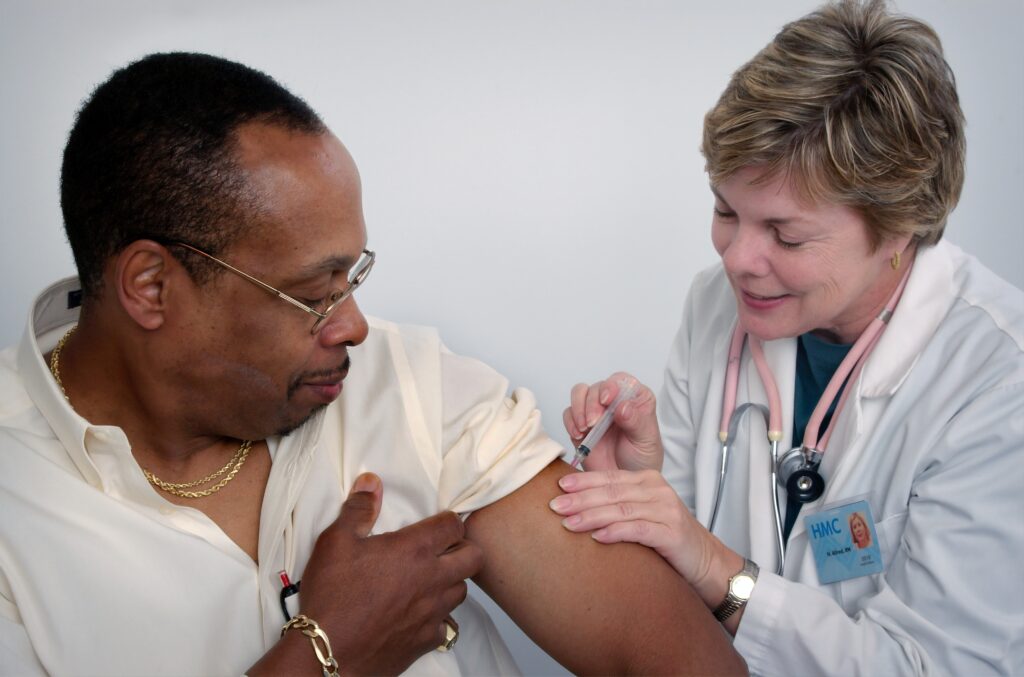

You’ve reached a milestone – the age of 50 – and now you may be wondering what lies ahead for your body. As men age, certain changes occur that can impact their physical health and overall well-being. From changes in metabolism and muscle mass to hormonal shifts and an increased risk of certain health conditions, understanding what happens to your body after 50 is vital in order to take proactive steps towards a healthier future. In this article, we will explore the fascinating transformations that men experience as they enter this new chapter of life, providing you with the knowledge you need to navigate the aging process with grace and vitality.
Physical Changes
Decreased muscle mass and strength
After the age of 50, men may begin to experience a gradual decline in muscle mass and strength. This is due to a natural process called sarcopenia, which involves the loss of muscle fiber size and muscle mass. As muscle mass decreases, it becomes more challenging to perform physical tasks and maintain overall strength. Regular exercise, particularly resistance training, can help slow down this process and preserve muscle mass.
Increased body fat
Another physical change that men may notice after the age of 50 is an increase in body fat, especially around the waistline. This change in body composition can be attributed to a slower metabolic rate and hormonal changes, particularly a decrease in testosterone levels.
With increased body fat comes a higher risk of developing health issues such as cardiovascular disease, diabetes, and metabolic syndrome. Engaging in regular physical activity and adopting a balanced diet can help manage body fat and maintain a healthy weight.
Changes in skin
The aging process also affects the skin, leading to various changes and potentially contributing to a more aged appearance. As men get older, collagen and elastin production decreases, resulting in decreased skin elasticity and the formation of wrinkles.
Additionally, the skin may become drier and thinner, making it more prone to damage and injury. It is important to protect the skin from sun exposure and maintain a good skincare routine to minimize the effects of aging on the skin.
Decreased bone density
One of the common concerns for men over 50 is the decline in bone density, known as osteoporosis. This condition makes the bones weaker and more susceptible to fractures.
Maintaining a healthy lifestyle that includes regular weight-bearing exercises, adequate calcium intake, and vitamin D supplementation can help prevent or slow down the loss of bone density and reduce the risk of fractures.
Hair thinning and loss
While hair loss is a common occurrence in both men and women as they age, it tends to be more noticeable in men over the age of 50. Hair thinning and loss can be attributed to various factors, including hormonal changes, genetics, and individual predisposition.
While there are no guaranteed ways to prevent or reverse hair loss, some men may opt for hair loss treatments or hairstyles that can help manage its appearance.
Sexual Health
Decreased libido
One aspect of a man’s life that may be affected after the age of 50 is sexual health. Many men may experience a decrease in libido, or sex drive, as they get older. This can be attributed to various factors, including hormonal changes and age-related health conditions.
Good communication with your partner and seeking medical advice can help address any concerns and find ways to maintain a satisfying sex life.
Erectile dysfunction
Erectile dysfunction (ED) is another common issue that men may face as they age. It refers to the inability to achieve or maintain an erection sufficient for sexual activity.
ED can have both physical and psychological causes, including reduced blood flow to the penis, hormonal changes, certain medications, and stress. It is important to discuss any concerns with a healthcare provider who can provide appropriate guidance and treatment options.
Decreased fertility
Although it is common knowledge that women experience a decline in fertility with age, men also have a biological clock. It has been shown that as men age, sperm quality and quantity can decrease, which may affect the chances of conception.
While it is still possible for men to father children well into their later years, it becomes increasingly challenging. If you are considering starting a family later in life, it is advisable to consult with a fertility specialist who can assess your individual situation.
Changes in ejaculation
As men age, changes in ejaculation may be noticed. These changes can include a decreased volume of semen, a decrease in the force of ejaculation, and a longer refractory period between orgasms. These changes are typically considered a natural part of the aging process and do not require medical intervention.
However, if you have concerns or experience any sudden or severe changes, it is always prudent to consult with a healthcare professional.
Prostate issues


This image is property of images.unsplash.com.
Another aspect of male sexual health that may become a concern after the age of 50 is the prostate gland. The prostate gland tends to enlarge with age, a condition known as benign prostatic hyperplasia (BPH).
This enlargement can lead to symptoms such as frequent urination, difficulty starting or stopping the urinary flow, and a weak urine stream. Regular check-ups with a healthcare provider can help monitor the prostate’s health and detect any potential issues early on.
Cardiovascular System
Increased risk of heart disease
After the age of 50, men have an increased risk of developing heart disease. This can be attributed to various factors, including atherosclerosis (build-up of plaque in the arteries), high blood pressure, high cholesterol levels, and lifestyle choices such as smoking, poor diet, and lack of exercise.
It is crucial to adopt heart-healthy habits such as maintaining a balanced diet, engaging in regular physical activity, managing stress, and attending regular medical check-ups.
High blood pressure
High blood pressure, also known as hypertension, is a common health issue that tends to increase with age. It can put a strain on the cardiovascular system and increase the risk of heart disease, stroke, and other complications. Lifestyle modifications, such as reducing salt intake, increasing physical activity, managing stress, and, if necessary, taking prescribed medications, can help manage and control high blood pressure.
Changes in cholesterol levels
As men age, changes in cholesterol levels can occur, with an increase in low-density lipoprotein (LDL) cholesterol and a decrease in high-density lipoprotein (HDL) cholesterol. High levels of LDL cholesterol, also known as “bad” cholesterol, can contribute to the development of atherosclerosis, while low levels of HDL cholesterol, also known as “good” cholesterol, can be detrimental to heart health.
Regular monitoring of cholesterol levels, along with a healthy diet and regular exercise, can help maintain optimal cholesterol levels.
Decreased aerobic capacity
After the age of 50, men may notice a decrease in aerobic capacity, which refers to the ability of the heart and lungs to deliver oxygen to the muscles during physical activity. This can result in decreased stamina and a reduced ability to engage in intense aerobic exercises.
Regular cardiovascular exercise, such as walking, swimming, or cycling, can help improve and maintain aerobic capacity, leading to better overall fitness and heart health.
Endocrine System
Decreased testosterone levels
One of the significant hormonal changes that occur in men after the age of 50 is a decrease in testosterone levels. This decline, known as andropause or male menopause, can result in various symptoms, including fatigue, decreased muscle mass, decreased libido, mood changes, and decreased bone density.
Consulting with a healthcare provider can help determine if testosterone replacement therapy is an appropriate option for managing these symptoms.
Increased risk of diabetes
Age is a significant risk factor for developing type 2 diabetes, and men over the age of 50 may be particularly vulnerable. Lifestyle factors such as poor diet, sedentary behavior, and obesity can further increase this risk.
Regular exercise, maintaining a healthy weight, and adopting a balanced diet that includes whole grains, fruits, vegetables, and lean proteins can help reduce the risk of developing diabetes.
Increased risk of metabolic syndrome
Metabolic syndrome is a cluster of conditions that often occur together and increase the risk of heart disease, stroke, and type 2 diabetes. These conditions include abdominal obesity, high blood pressure, high blood sugar levels, high triglycerides, and low levels of HDL cholesterol.
Men over the age of 50 may have an increased risk of developing metabolic syndrome due to age-related changes in metabolism and lifestyle factors. A healthy lifestyle, including regular exercise, a balanced diet, and weight management, can help prevent or manage metabolic syndrome.
Thyroid issues


This image is property of images.unsplash.com.
Thyroid problems, such as hypothyroidism (underactive thyroid) or hyperthyroidism (overactive thyroid), can develop at any age but tend to become more common as men age.
The thyroid gland plays a crucial role in regulating metabolism, and an imbalance in thyroid hormone levels can lead to various symptoms and health issues. Routine thyroid function tests and regular medical check-ups can help detect and manage any thyroid problems that may arise.
Digestive System
Slower metabolism
One of the changes that men may notice after the age of 50 is a slower metabolism. This means that the body burns calories at a slower rate, making weight management more challenging.
To combat this, it is essential to maintain a balanced diet that includes nutrient-dense foods and avoid excessive calorie intake. Regular exercise, including strength training, can also help boost metabolism by increasing muscle mass.
Weight gain
Linked with a slower metabolism, weight gain is a common concern for men over 50. With age, muscle mass naturally declines, while body fat tends to increase. This change in body composition can lead to weight gain, especially around the waistline. Implementing a healthy lifestyle that incorporates regular physical activity and a balanced diet can help manage weight and prevent excessive weight gain.
GOBIOTIX Super Greens Powder Review
Digestive issues
Men may also experience various digestive issues as they age, such as indigestion, acid reflux, and constipation. These issues can be caused by factors such as changes in diet, reduced physical activity, and age-related changes in the digestive system. Adapting to a diet high in fiber, drinking plenty of water, engaging in regular exercise, and managing stress can help maintain a healthy digestive system and prevent or alleviate digestive issues.
Increased risk of colon cancer
Men over the age of 50 are at an increased risk of developing colon cancer. Regular screenings, such as colonoscopies, can help detect any abnormalities or precancerous growths early on, making treatment more effective. Maintaining a healthy lifestyle, including a balanced diet high in fiber, regular exercise, and avoiding excessive alcohol consumption and smoking, can help reduce the risk of colon cancer.
Urinary System
Increased risk of urinary incontinence
After the age of 50, men may experience an increased risk of urinary incontinence, which involves involuntary leakage of urine. This can be due to various factors, such as weakening pelvic floor muscles, an enlarged prostate gland, or certain medical conditions. Kegel exercises, bladder training, and seeking medical advice can help manage or improve urinary incontinence.
Enlarged prostate
Benign prostatic hyperplasia (BPH) is a common condition that involves the enlargement of the prostate gland. As men age, the prostate gland tends to grow, which can lead to urinary symptoms such as frequent urination, difficulty starting or stopping the urinary flow, and a weak urine stream. Regular check-ups with a healthcare provider can help monitor the prostate’s health and detect any potential issues early on.
Urinary tract infections


This image is property of images.unsplash.com.
While urinary tract infections (UTIs) are more common in women, men can also develop UTIs, especially as they age. This can be attributed to factors such as an enlarged prostate, urinary catheterizations, or any obstructions in the urinary tract.
Maintaining good hygiene, staying hydrated, and seeking prompt medical attention for any signs or symptoms of a UTI can help prevent and manage these infections.
Musculoskeletal System
Decreased flexibility
As men age, a decrease in flexibility and joint range of motion can occur. This can make movements and physical activities more challenging and increase the risk of injuries. Regular stretching exercises and activities that improve flexibility, such as yoga or tai chi, can help maintain joint mobility as you age.
Joint pain and stiffness
Arthritis, particularly osteoarthritis, is a common condition that can affect the joints, causing pain and stiffness. As men age, the risk of developing osteoarthritis increases. Maintaining a healthy weight, engaging in regular physical activity without putting excessive stress on the joints, and using joint-friendly techniques can help manage joint pain and maintain joint health.
Osteoarthritis
Osteoarthritis is a degenerative joint disease characterized by the breakdown of cartilage, leading to joint pain, stiffness, and reduced mobility. Men over the age of 50 may be more susceptible to developing osteoarthritis, especially in weight-bearing joints such as the knees and hips.
Managing weight, staying physically active, and using pain management techniques under medical guidance can help alleviate the symptoms of osteoarthritis.
Decreased bone strength
After the age of 50, men may experience a decline in bone strength and density, increasing the risk of fractures and osteoporosis. To maintain bone health, it is essential to consume adequate calcium and vitamin D, engage in weight-bearing exercises, and avoid excessive alcohol consumption and smoking.
Regular bone density screenings can help detect any bone loss and guide appropriate preventative measures or treatments.
Neurological Changes
Memory decline
Memory decline is a common age-related change that many men may experience after the age of 50. It can involve difficulties with short-term memory, a decline in processing speed, and occasional forgetfulness.
Engaging in mentally stimulating activities, maintaining social connections, getting regular exercise, and adopting a healthy lifestyle can help support brain health and minimize memory decline.
Kaged Outlive 100 | Organic Superfoods | Greens Powder Review
Increased risk of cognitive decline
While some cognitive decline is considered a normal part of aging, men over the age of 50 are at an increased risk of developing cognitive impairment or neurodegenerative diseases such as Alzheimer’s disease or dementia.
Adopting a brain-healthy lifestyle, including regular exercise, a balanced diet rich in antioxidants and omega-3 fatty acids, mental stimulation, and maintaining social connections, can help promote brain health and reduce the risk of cognitive decline.
Increased risk of neurodegenerative diseases
Neurodegenerative diseases, such as Alzheimer’s disease and Parkinson’s disease, become more prevalent with age. These conditions involve the progressive degeneration and loss of neurons, leading to various symptoms and impairments.
While there is no known cure for these diseases, adopting a healthy lifestyle and staying mentally and physically active may help reduce the risk or delay the onset of symptoms.
Mental Health
Increased risk of depression
Depression can affect anyone regardless of age, but men over the age of 50 may be at a higher risk. Factors such as hormonal changes, chronic illnesses, social isolation, and life transitions can contribute to an increased susceptibility to depression.
It is important to recognize the signs and symptoms of depression and seek appropriate support or treatment if needed. Maintaining social connections, engaging in activities that bring joy, and seeking emotional support can help prevent or manage depression.
Higher rates of suicide
Unfortunately, suicide rates tend to increase with age, with middle-aged and older men being at a higher risk. Social isolation, financial stressors, health issues, and untreated mental health conditions can contribute to this risk.
It is crucial to prioritize mental health and seek help if experiencing thoughts of suicide or if concerned about a loved one’s well-being. Reach out to mental health professionals, helplines, or support networks for assistance.
Anxiety and stress
Anxiety and stress can become more prevalent as men age, especially when dealing with the challenges and transitions that come along with this stage of life. It is important to find healthy coping mechanisms, such as exercise, meditation, engaging in hobbies, and seeking emotional support, to manage anxiety and stress levels.
If symptoms persist or significantly interfere with daily life, it is advisable to consult with a healthcare professional.
Changes in cognitive function
Changes in cognitive function, such as a decline in processing speed and occasional forgetfulness, may occur as part of the natural aging process. While these changes are considered normal, if there are concerns about cognitive abilities or if cognitive impairments significantly impact daily life, it is essential to seek medical advice. Maintaining an active and mentally stimulating lifestyle can help support cognitive function as you age.
Vision and Hearing
Presbyopia
Presbyopia is an age-related condition that affects near vision, making it more challenging to focus on close objects. Men over the age of 50 may begin to notice difficulties with tasks such as reading or using electronic devices without the aid of reading glasses or bifocals.
Regular eye examinations and visiting an optometrist or ophthalmologist can help address any vision changes and ensure appropriate corrective measures are taken.
Age-related macular degeneration
Age-related macular degeneration (AMD) is a condition that affects the central portion of the retina, leading to a loss of central vision. It is one of the leading causes of vision loss in older adults.
Regular eye examinations and adopting a healthy lifestyle, which includes a balanced diet rich in antioxidants, can help reduce the risk or slow down the progression of AMD.
Hearing loss
Hearing loss is another common age-related change that men may experience after the age of 50. It can involve a decline in hearing sensitivity, difficulties understanding speech in noisy environments, or ringing in the ears (tinnitus). Regular hearing screenings and seeking appropriate assistance, such as hearing aids or assistive devices, can help manage hearing loss and improve overall quality of life.
In conclusion, men’s bodies undergo various changes after the age of 50. These changes can affect multiple systems and aspects of health, including physical, sexual, cardiovascular, endocrine, digestive, urinary, musculoskeletal, neurological, mental, and sensory health.
While some of these changes are considered a normal part of aging, it is important to prioritize overall health and well-being by adopting a healthy lifestyle, seeking appropriate medical guidance, and staying proactive in managing any health concerns that arise. Remember, age is just a number, and with proper care and attention, you can continue to lead a fulfilling and healthy life after 50.







